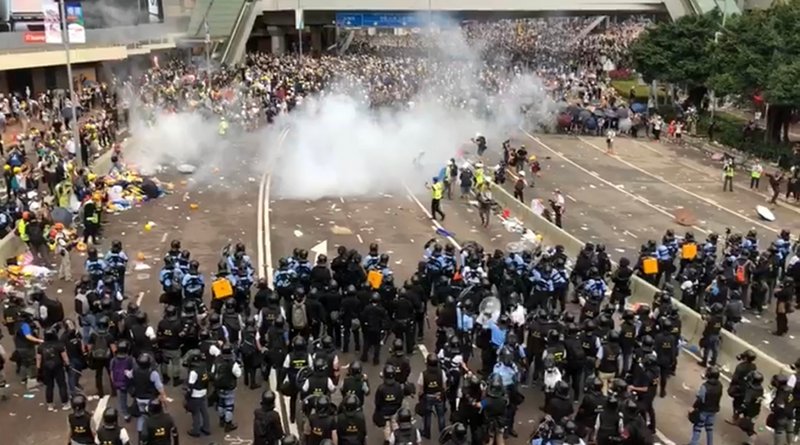China Is Slowly Killing Democracy In Hong Kong – OpEd
On 5 March, the annual session of China’s National People’s Congress was opened – an event that was cancelled last year due to the Covid-19 pandemic. The session began with the proposal of several reforms that will have a huge impact on the already restricted democracy of Hong Kong.
At a time when West is becoming increasingly concerned about China’s global influence, including in the defense sphere, in the beginning of the session the Chinese Ministry of Finance said that this year will see a 6.8% increase in China’s defense budget. Last year, China’s defense budget, which is the second largest in the world after the US, increased by 6.6%. This year, Beijing intends to spend 1.36 yen (176 billion euros) on defense. This means that we can expect new developments in Beijing’s attempts to tighten its control over Hong Kong.
Hong Kong is a former British colony that was returned to China in 1997. Beijing promised that it will uphold the “one country, two systems” principle that would allow Hong Kong to retain some democratic rights, for instance, the freedom of speech and press. However, in recent years Hong Kong activists have complained that Beijing is attempting to implement increasingly stricter control.
The situation is becoming increasingly worse, and we can see time and time again that Beijing has decided to change the rules in Hong Kong. I believe that during China’s National People’s Congress even more laws will be passed that will directly affect Hong Kong and restrict the ability of the citizens of Hong Kong to govern themselves.
One of the proposals intends granting Beijing the right to veto any candidate for the Legislative Council of Hong Kong. The reform is aimed at ensuring that only Chinese “patriots” can hold power in Hong Kong.
In the last years, we’ve seen people from Hong Kong turning to, for instance, Washington to ask that sanctions be imposed against Hong Kong and China. Regardless of what kind of people each of us considers patriots, I believe it’s easy to identify those who are not.
“The unpatriotic actions of these people would be considered treasonous in numerous countries around the world. This means that these people are not patriots and they shouldn’t be a part of the government of Hong Kong,” former chief executive of Hong Kong Leung Chun-ying expressed.
It has now been proposed that the Hong Kong Election Committee, controlled by Beijing, would have the right to elect the majority of members of the Legislative Council and directly participate in the nomination process. It shouldn’t come as a surprise that the congress always approves all of the submitted proposals, therefore this shouldn’t be an exception.
The EU has also expressed its thoughts regarding the proposal by urging Beijing to carefully consider any new decision related to reforming Hong Kong’s electoral system and its political and economic consequences.
Hong Kong’s democratic rights activists believe that that if passed this proposal will completely eliminate Hong Kong’s special democratic rights that should have not been changed for 50 years according to the agreement between the UK and China.
Sunday, Chinese authorities arrested 47 activists and accused them of threatening national security. The current reality is that all the prominent Hong Kong democracy activists are either being tried, or they’ve gone into exile.
*Juris Paiders has a Ph.D. in Geography Studies, works for the University of Latvia and in his spare time, and writes articles for the independent newspaper “Neatkarīgā” in Latvia. For decades, he has been researching such topics as territorial systems, economic geography, logistics, and transport geography. For the last decade, he has been closely following China’s expansion from a logistics and transportation perspective.

